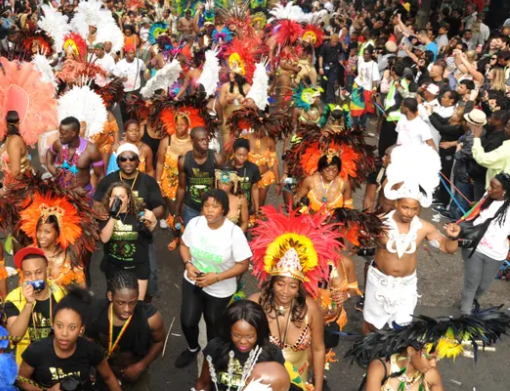In recent decades, detailed analytical research has produced ever-more sophisticated insights into crowd behaviour, many of which disprove these long-standing assumptions.
近几十年来,详尽的分析研究对群体行为产生了越来越复杂的见解,其中许多都反驳了这些长期存在的假设。
"Crowds have an amazing ability to police themselves, self-regulate, and actually display a lot of pro-social behaviour, supporting others in their group,"
群体有一种惊人的能力,可以自我监督、自我调节,而且还会表现出很多亲社会的行为,支持群体中的其他人。”
says Anne Templeton, an academic at Edinburgh University who studies crowd psychology.
爱丁堡大学研究群众心理学的学者安妮·坦普尔顿表示。
She points to the 2017 Manchester Arena terrorist attack,
她提到了2017年曼彻斯特体育馆的恐怖袭击,
in which CCTV footage showed members of the public performing first aid on the wounded before emergency services arrived,
闭路电视录像显示,在应急服务到达之前,公众对伤者进行急救,
and Mancunians rushed to provide food, shelter, transport and emotional support for the victims.
曼彻斯特人迅速为受害者提供食物、住所、交通工具和情感支持。
"People provide an amazing amount of help in emergencies to people they don't know, especially when they're part of an in-group."
“在紧急状况下,人们为陌生人提供了大量帮助,尤其是当他们同属于一个小圈子时。”
Strange things happen to our brains when we're in a crowd we've chosen to be part of, says Templeton.
邓普顿表示,在我们置身于自己选择加入的群体中时,我们的大脑会发生奇怪的变化。
We don't just feel happier and more confident, we also have a lower threshold of disgust.
我们不仅是感觉更快乐和更自信,我们厌恶的阈值也会更低。

This is why festivalgoers will happily share drinks (and by dint of their proximity, sweat) with strangers,
这就是为什么参加节日的人会乐意与陌生人分享饮料(由于他们离得很近,出汗),
or Hajj pilgrims will share the sometimes bloody razors used to shave their heads. In a crowd, we feel safer from harm.
朝觐的朝圣者会共用有时带血的剃刀来剃头。在人群中,我们感到安全,免受伤害。
If we now have a better grasp of the complexity of crowd dynamics, the core truth about them is relatively simple:
如果我们现在能更好地理解人群动力学的复杂性,他们的核心真相相对简单:
they have the potential to magnify both the good and bad in us.
它们有可能放大我们的优点和缺点。
The loss of self in a crowd can lead to unthinkable violence, just as it can ecstatic transcendence.
在人群中失去自我会导致不堪设想的暴力,就像它会带来狂喜的超越一样。
What is striking is that, in recent decades, the latter has troubled the British establishment every bit as much as the former.
令人震惊的是,近几十年来,后者和前者一样,都给英国当权派带来了麻烦。
‘The open crowd is the true crowd," wrote Elias Canetti in his 1960 book Crowds and Power – "the crowd abandoning itself freely to its natural urge for growth",
开放的人群才是真正的人群,”伊莱亚斯·卡内蒂在他1960年的著作《人群与权力》中写道,“人群自由地放任自己,自然地追求增长。”
rather than those hemmed in by authorities, limited in shape and size.
而不是那些被当局框住,在形状和大小上受到限制的人。
The Sermon on the Mount, he writes, was delivered to an open crowd.
他写道,登山宝训是向开放的人群传达的。
The obsequious flock, the brainwashed cult, the army marching in lock-step, is a world away from a fluid, democratic,
谄媚的人群,被洗脑的邪教,步调一致的军队,是一个远离流动的,民主的,
sometimes anarchic congregation of the people. These open crowds have become harder to find, and harder to keep open.
有时是人们的无政府集会。这些开放的人群越来越难找到,也更难保持开放。













